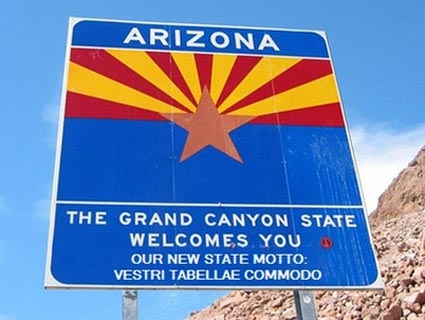As MoJo‘s Adam Serwer reported Monday, the Supreme Court voted down three of four provisions of Arizona’s controversial immigration law, SB 1070, but allowed one harsh measure to stand: The court upheld (for now)* section 2B, which requires law enforcement officers to determine the immigration status of suspects during lawful stops, detentions, or arrests. Along with Arizona, five other states—Alabama, Georgia, Indiana, South Carolina, and Utah—have similar “show your papers” laws on the books. Meanwhile, from 2010 to 2011, 30 state legislatures rejected bills modeled after Arizona’s.
![]()
This year, with the uncertainty surrounding the impending court decision and with legislators unwilling to deal with the type of fallout seen in Alabama, only five states introduced such legislation: Kansas, Mississippi, Missouri, Rhode Island (PDF), and West Virginia. The Missouri, Mississippi, and West Virginia bills failed; Kansas’ regular legislative session has ended without action on the bill, and the same outcome appears likely in Rhode Island, whose session is over July 2. (Four of the five states—Rhode Island excluded—had already tried and failed to pass similar bills previously.)
Following Monday’s Supreme Court ruling, Nebraska state Sen. Charlie Janssen, sponsor of a 2011 Arizona-style bill, told the Associated Press he was unsure if he’d repropose it moving forward, saying, “I certainly wouldn’t bring something back that the US Supreme Court just shot down.” But Mississippi Republican state Rep. Becky Currie, cosponsor of the state’s HB 488 (PDF), is undaunted. She told the Jackson Clarion-Ledger that the ruling merely would affect how she wrote future anti-immigrant legislation. Currie also told the paper that she expected a future Mississippi immigration bill to have a “self-deportation effect“: “As soon as the bill passes, illegal immigrants will leave the state.”
Correction: This article initially claimed that the Supreme Court upheld section 2B, which is incorrect. Read Serwer’s Tuesday post to see why.

















